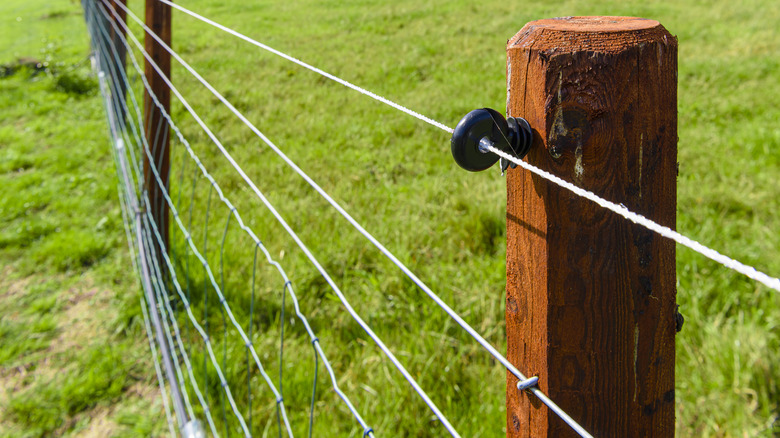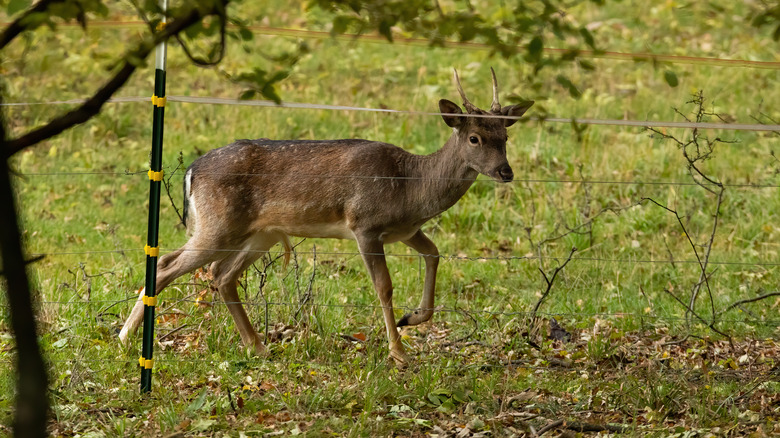Why You Might Consider Adding An Electric Fence To Your Garden
The first time you see a cute furry critter in your garden, you might be charmed. The 100th time you see one, you might be ready to resort to just about anything to protect your garden plants from their snacking. An electric fence can be useful for keeping out raccoons, squirrels, chipmunks, porcupines, woodchucks, rabbits, possums, and wild hogs.
Electric fences deliver a shock when touched. They come in various voltages for different sizes of animals. When properly installed, they don't cause injuries — just enough of an unpleasant sensation that animals are deterred from touching the fence again. Often, these fences are used to keep livestock contained, but they're also useful to keep certain unwanted critters out. Some people even use them to keep bigger animals like deer or bears away from the yard.
One benefit of an electric fence is that it's cheaper and easier to install than traditional fencing. Both battery-powered and plug-in styles are available, and unlike solid fences, you can easily move electric options around as needed. However, proper installation and maintenance are key; otherwise, your fence may not be effective or could hurt someone.
The right way to use an electric fence
For an electric fence to work on small critters, you must make sure that they aren't able to get over, under, or around the electric wire into your garden. If you've dealt with wild animals a lot, you know how crafty they can be about finding a way in. Between climbing, digging, and jumping, you might need multiple forms of protection to cover all of your bases, such as chicken wire or other types of fencing.
Proper installation is key for safety. Hire a professional or carefully follow the instruction manual, and be sure to check the local laws on electric fencing. Place your fencing a few feet away from structures like chicken coops and far from power or communication lines. Set up clear signage that warns potential visitors of the risk of shock. Your installation process should also prevent animals from getting tangled in the wires, which could lead to injuries.
Frequent maintenance is important as well. Check your electric fence regularly for rusted, loose, or damaged wires. Keep the fence free of blockages or debris, such as overgrown plants, fallen branches, or leaves. You may also need to make sure the system is still getting continuous power and working as expected. Practice safety precautions whenever you're working on or checking your electric fence.

